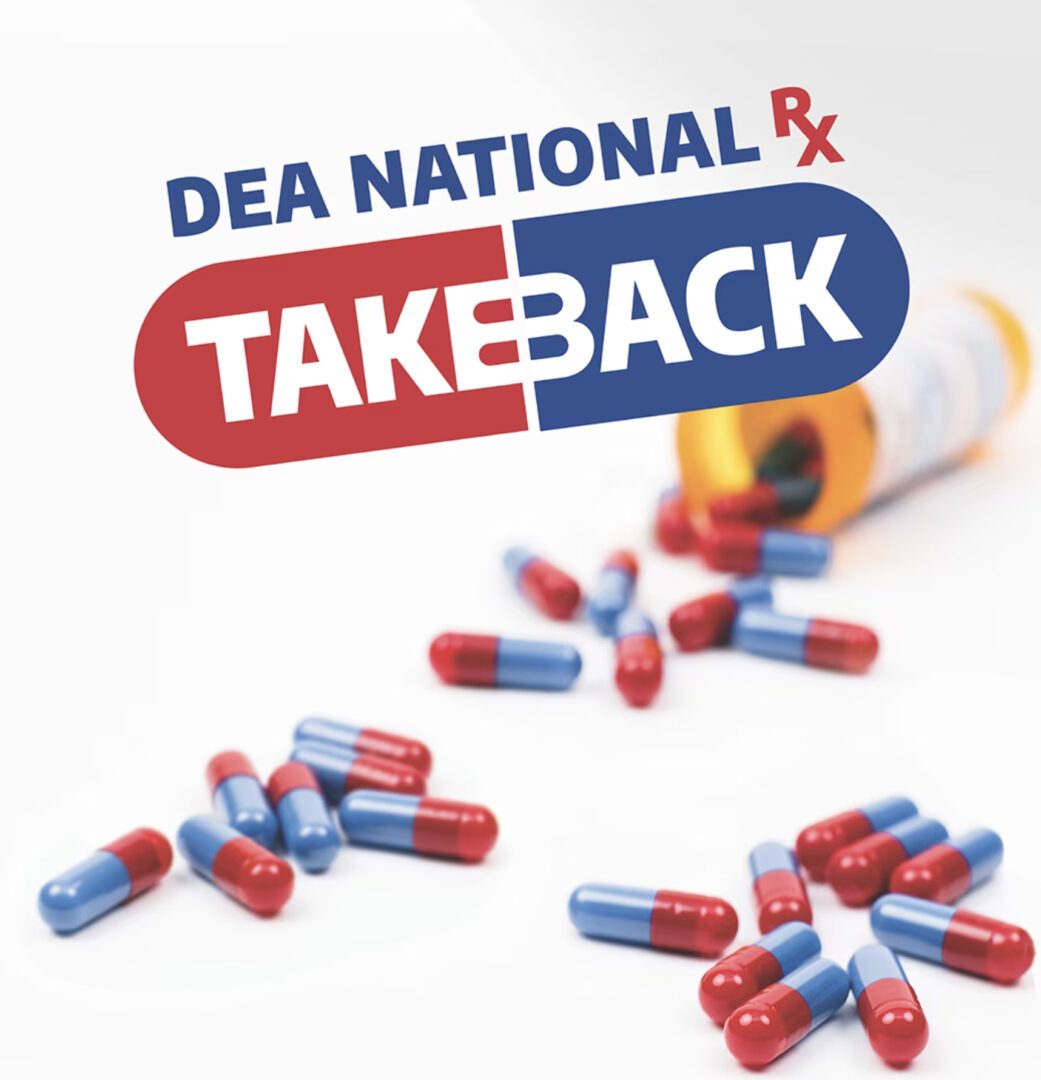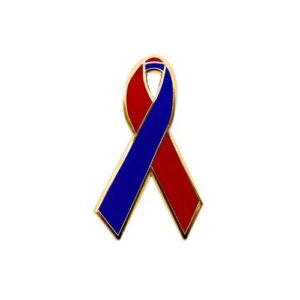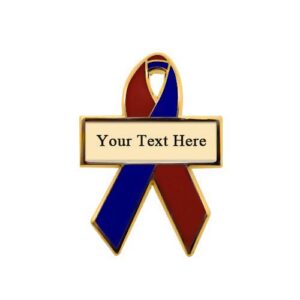Did you know that prescription drugs thrown in the trash can be retrieved to be abused or illegally sold? Or, further, that drugs flushed down toilets contaminate the water supply? The drug overdose epidemic in the United States is considered a public health, public safety and national security threat. We can help prevent and reduce medication misuse and opioid addiction by properly disposing of any unneeded medications at home. Too often, unused prescription drugs find their way into the wrong hands, creating a dangerous and often tragic situation.
To prepare for Take Back Day:
- Locate all medications in your household and ensure that they are securely stored (all lids are tightly on bottles, away from the reach of children and pets, etc.).
- Inventory the medications and identify which are unwanted and/or have expired dates.
- Label each of those identified medications with clear signage that indicates disposal.
National Prescription Drug Take Back Day
The U.S. Drug Enforcement Administration (DEA) hosts a no-questions asked National Prescription Drug Take Back event twice per year. On this day, collection sites are set up in local cities throughout the nation for safe disposal of prescription drugs. This includes opioids. Collection sites may be found at retail, hospital, or clinic pharmacies, or law enforcement facilities.
Drug overdoses skyrocketed during the COVID-19 pandemic. Over 106,000 drug overdose deaths were reported in the 12 month period ending May 2023. This is compared to 69,000 deaths in the 12 months ending October 2019. Disposing of unneeded or expired medications helps fight this crisis. This is because many abused prescription drugs are found in the home.
Opioids, including synthetic opioids like illicit fentanyl, were responsible for many of these deaths. In fact, opioids are a factor in 7 out of every 10 overdose deaths.
Unwanted Prescription Drug Disposal
The DEA wants to ensure the public that there are safe ways to dispose of unwanted prescription drugs, including at-home disposal and year-round collection sites.
- The best way to dispose of most types of unused or expired medicines (both prescription and over the counter) is to drop off the medicine at a drug take back site, location, or program.
- In October 2022, the DEA noted they accepted tablets, capsules, patches, and other forms of prescription drugs. Collection sites did not accept syringes, sharps, and illicit drugs. Liquid products, such as cough syrup, should remain sealed in their original container with the cap tightly sealed.
- If this is not possible, and your medicine is on the FDA Flush List, you should flush this dangerous and possibly life-threatening medicine down the toilet. Don’t flush your medicine unless it is on the flush list.
- Follow your healthcare provider’s instructions specifically for disposing of medicines if these were provided.
Be aware that some medicines should only be flushed when drop off facilities are not available because they are too dangerous to leave in the trash. See the list of drugs that SHOULD be flushed here. Be sure to follow your local community regulations for flushing of medications.
Trash Disposal
Many medications can be thrown in the trash. Follow the steps (below) before disposing of them. Medicines include prescription and over-the-counter (OTC) drugs in pills, liquids, drops, patches, and creams. Look at the package insert of your medication to see if special instructions exist for disposal.
Inhalers for asthma or other breathing conditions could be dangerous if punctured or thrown into a fire or incinerator. To properly dispose of these products and follow local regulations and laws, contact your trash and recycling facility.
Follow these steps to dispose of most medicines in the household trash:
- Mix medicines with an unpalatable substance such as dirt, used coffee grounds, or kitty litter. Take them out of their original container first. Do not crush tablets or capsules before mixing.
- Place the mixture in a sealed container (sealed plastic bag or empty can) to prevent the drug from leaking into the garbage.
- Throw the container in the trash.
- When disposing of empty prescription bottles or packages, be sure to mark out identifying personal information to make it unreadable.




